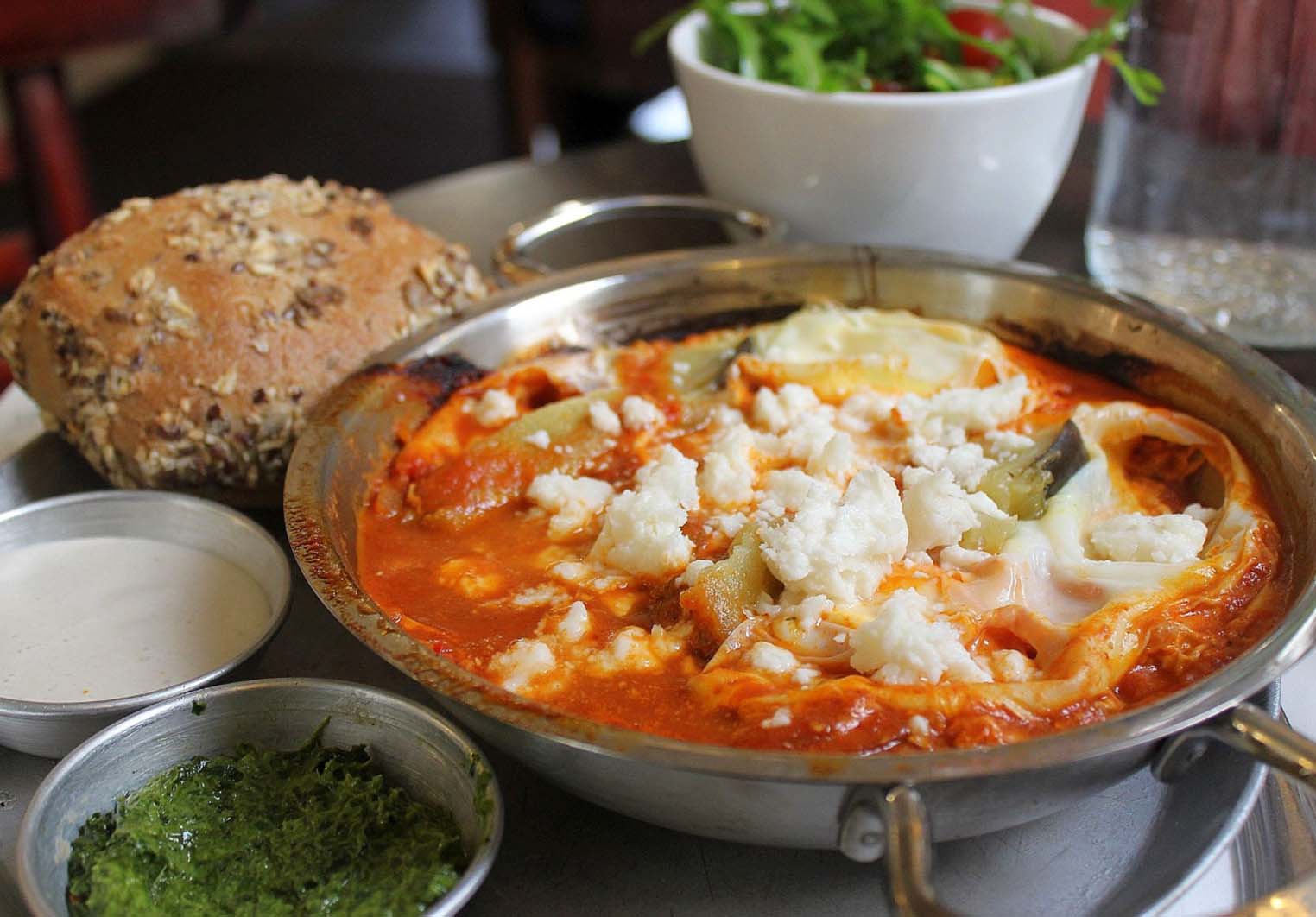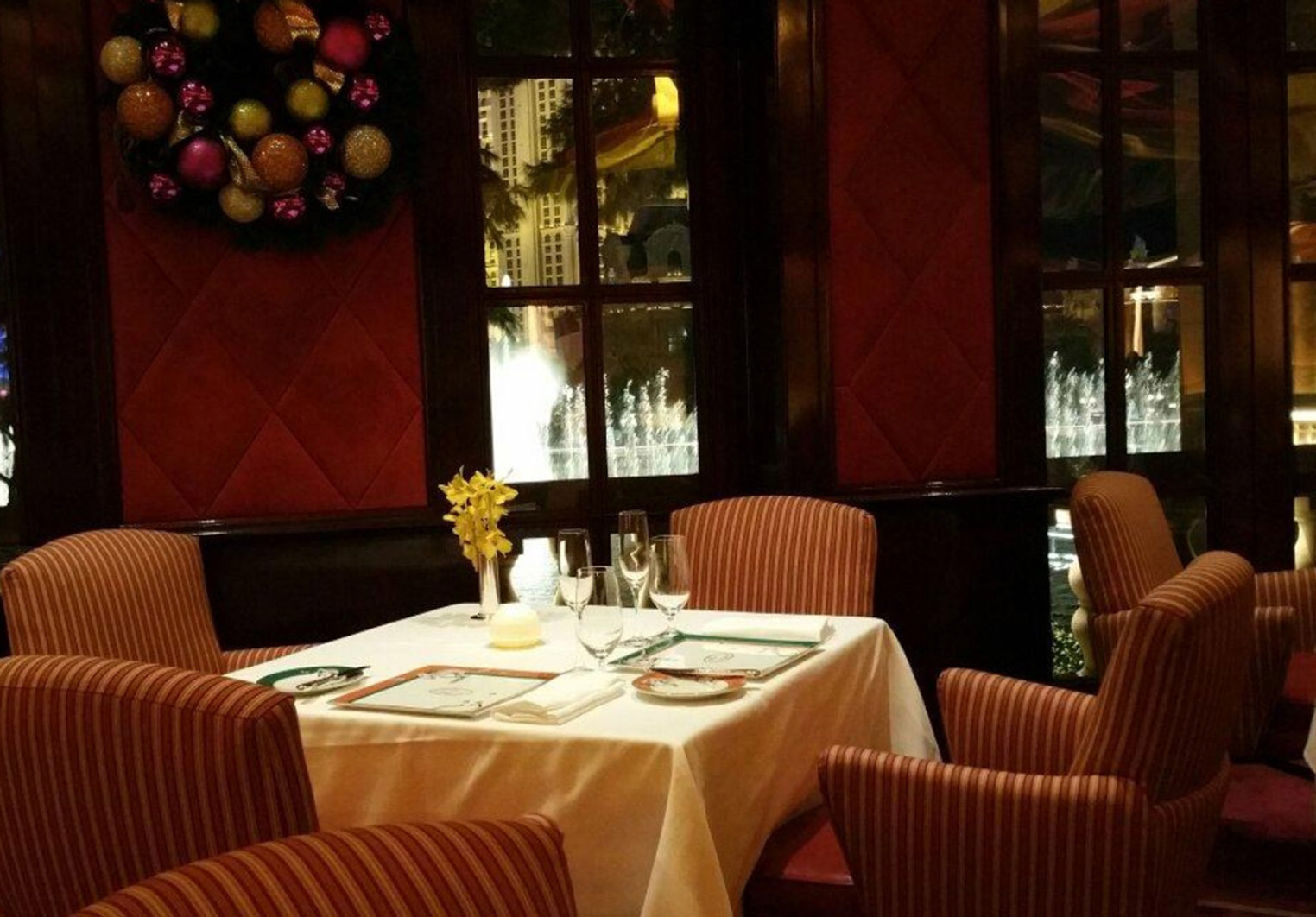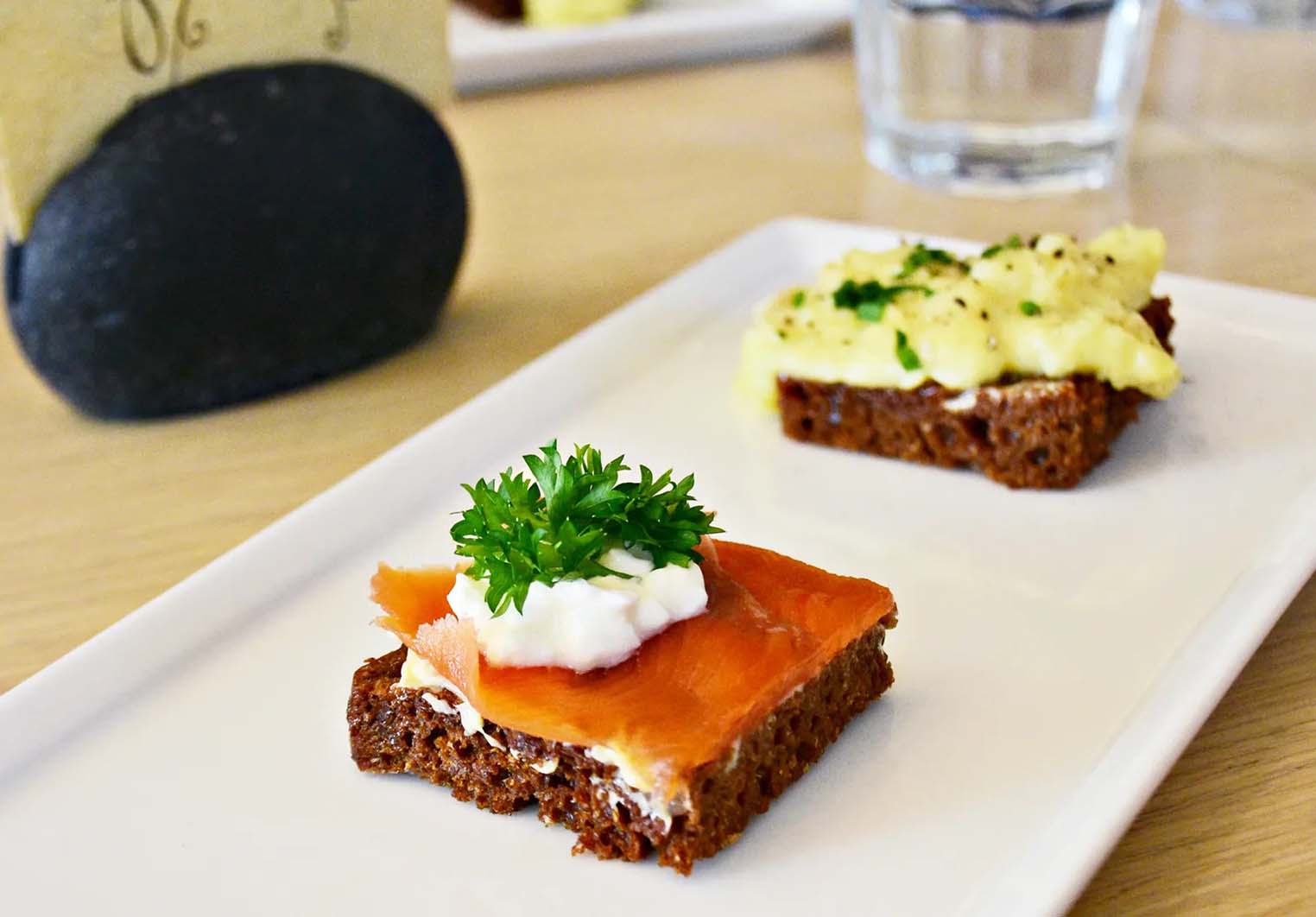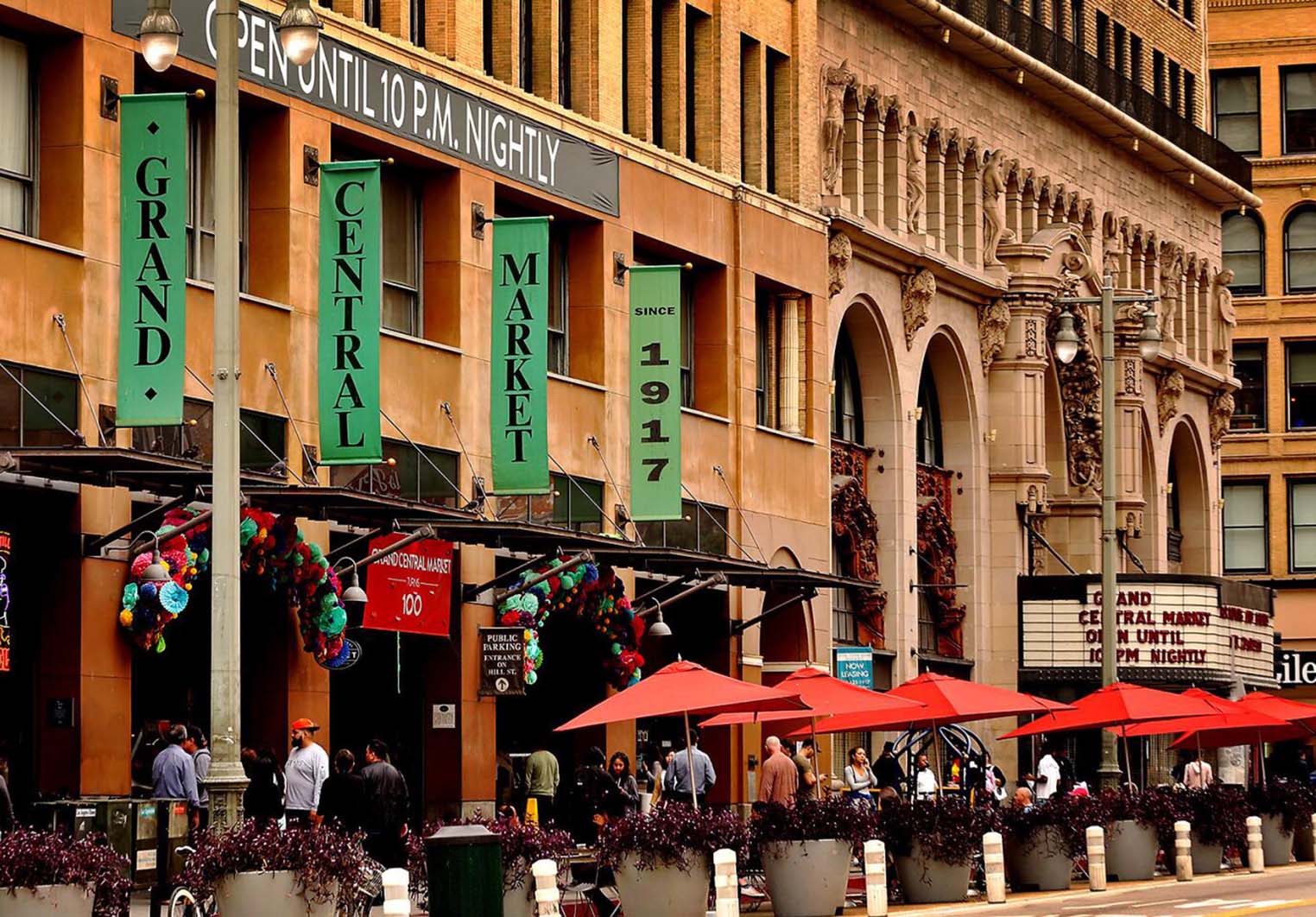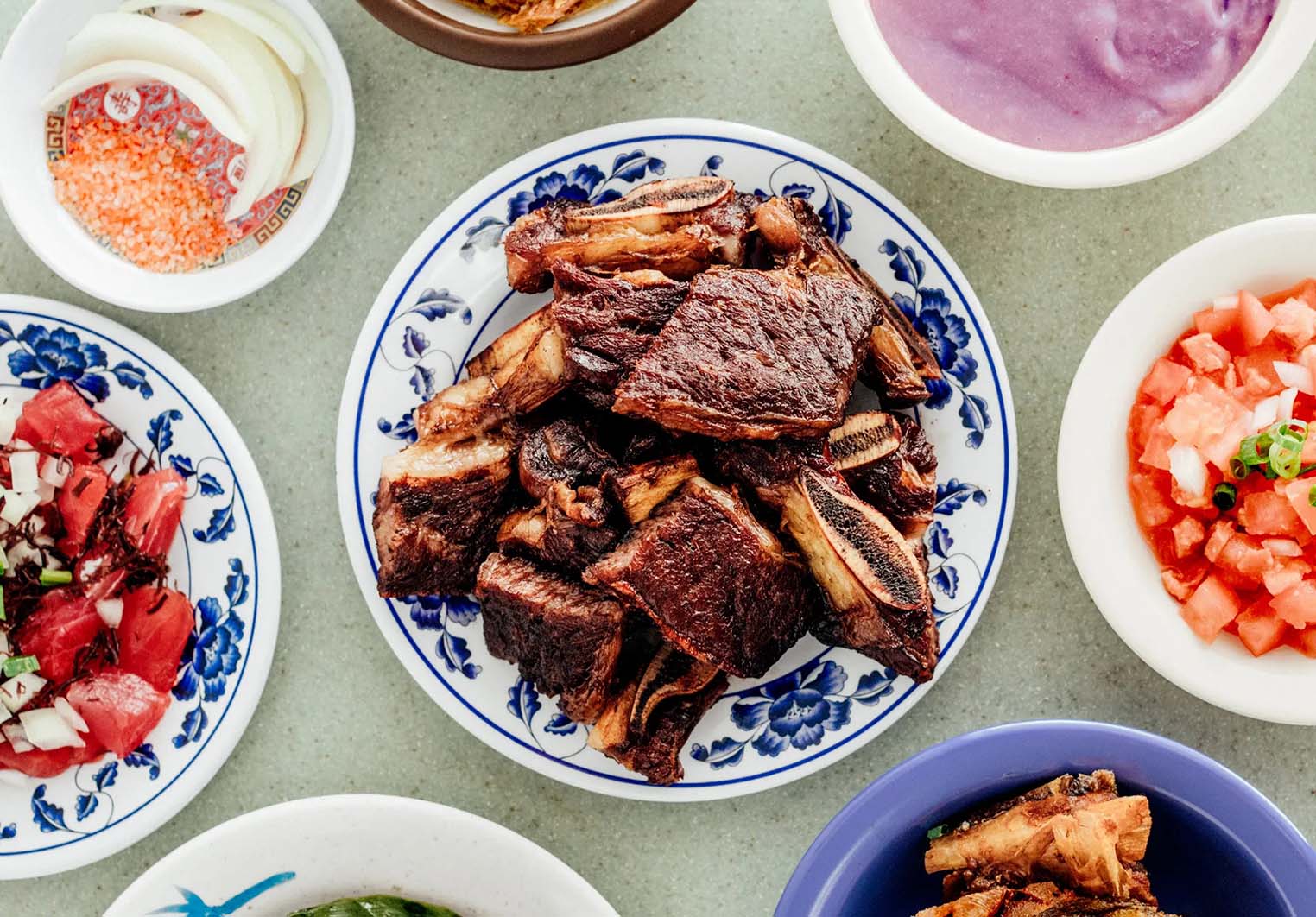Israel ruined my life. Not a day goes by when I don’t think about the delicious cuisine I had there. Whether it’s the succulent olives, soft and warm pita bread, ordinary bakeries, the incredible shakshuka, perfectly cooked eggplant, delightful steamed bulgur, and I won’t even mention the fantastic hummus. Ever since leaving Israel, the flavors just haven’t been the same.
Let me tell you: Israeli food has ruined your life. Before going to Israel, I was content with mediocre hummus, but after trying the hummus at Sayid’s in Acre, I realized that I had never truly had good hummus before. This place has the best food in Israel! Israeli hummus, to be precise. But I’m getting ahead of myself – let’s start from the beginning.
What is Israeli cuisine?
Israel is a culinary melting pot, blending the flavors of all the different cultures that have passed through the region over hundreds of years, marking what is known as modern-day Israel. The aromatic spices of North Africa, the scents and tastes of the Middle East and the Mediterranean, and traditional Jewish dishes come together to create a truly unique and, most importantly, highly diverse and delicious Israeli cuisine. Dishes like shawarma and honeyed pastries coexist with schnitzels, minestrone soup, and chopped liver. Other dishes you’ll come across time and time again, from inexpensive street vendors to high-end restaurants, include falafel sandwiches, olives, fresh fish, grilled kebabs, and hummus. One thing I love about Israeli cuisine is that everything is incredibly fresh – fruits and vegetables are bought at bustling open markets rather than sterile supermarkets, fresh juices are ordered at street food stands, and mobile bakeries traverse the city, selling fresh bread and pastries. Aromatic spices are popular in all the markets, and dried fruits and nuts as well.
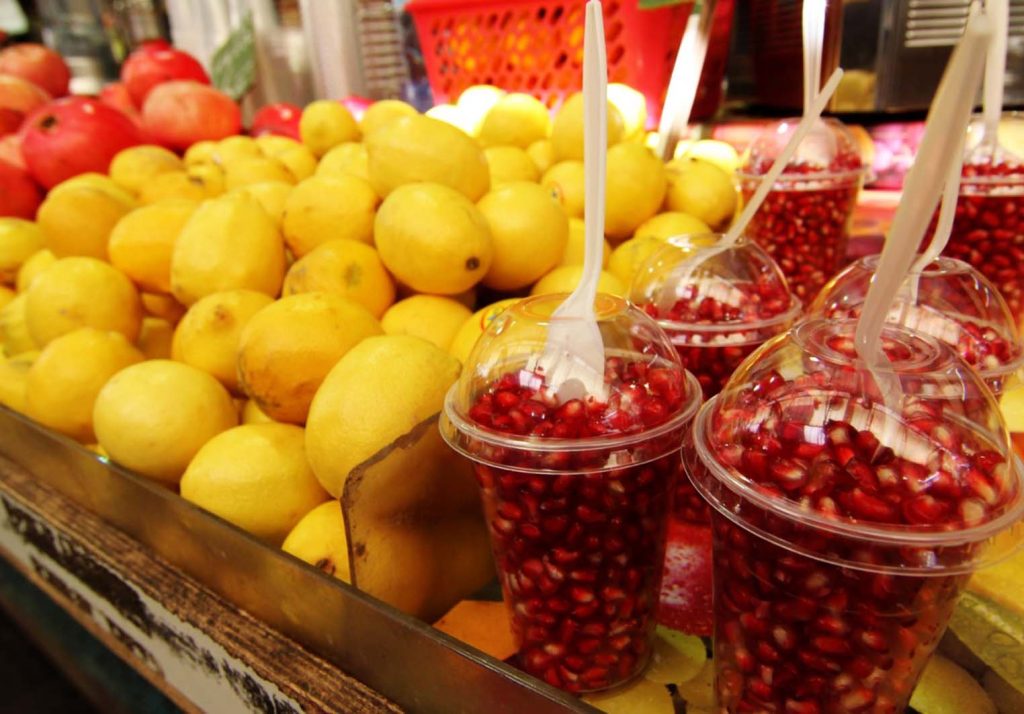
My favorite Israeli food, hands down, is breakfast! Breakfast is my favorite meal of the day in Israel, and there are two standout dishes:
Shakshuka
It’s been my all-time favorite and the best food in Israel! Interestingly, I was introduced to shakshuka at an Israeli restaurant in Guatemala (note: if you find yourself in a meat-centric country, look for an Israeli restaurant – there are always plenty of vegetarian options). Despite having had it in many places around the world, I was thrilled to try it in Israel. So, what exactly is shakshuka? It’s an egg dish where eggs are baked in a delicious tomato sauce made from tomatoes, peppers, onions, garlic, chili, and various spices.
In some places, you may find shakshuka with additional ingredients like eggplant, feta cheese, or even shrimp. When ordering it at a restaurant, it’s typically served in the cast-iron skillet it was cooked in. I was even happier when an Israeli friend told me that having shakshuka for lunch and dinner was perfectly acceptable. I could eat it three times a day; it’s that good. Shakshuka is undoubtedly the most popular shakshuka restaurant in all of Israel, located in the southern part of Tel Aviv’s city center, in Jaffa – it’s called Dr. Shakshuka. It started as a small food shack and has now grown into a spacious restaurant with a menu featuring various shakshuka options. I have to admit that I wasn’t as blown away by the shakshuka I had there (or maybe my expectations were just too high after hearing so much praise?), and there are better shakshuka options throughout Israel, such as at Sindy’s Cafe in Jerusalem.
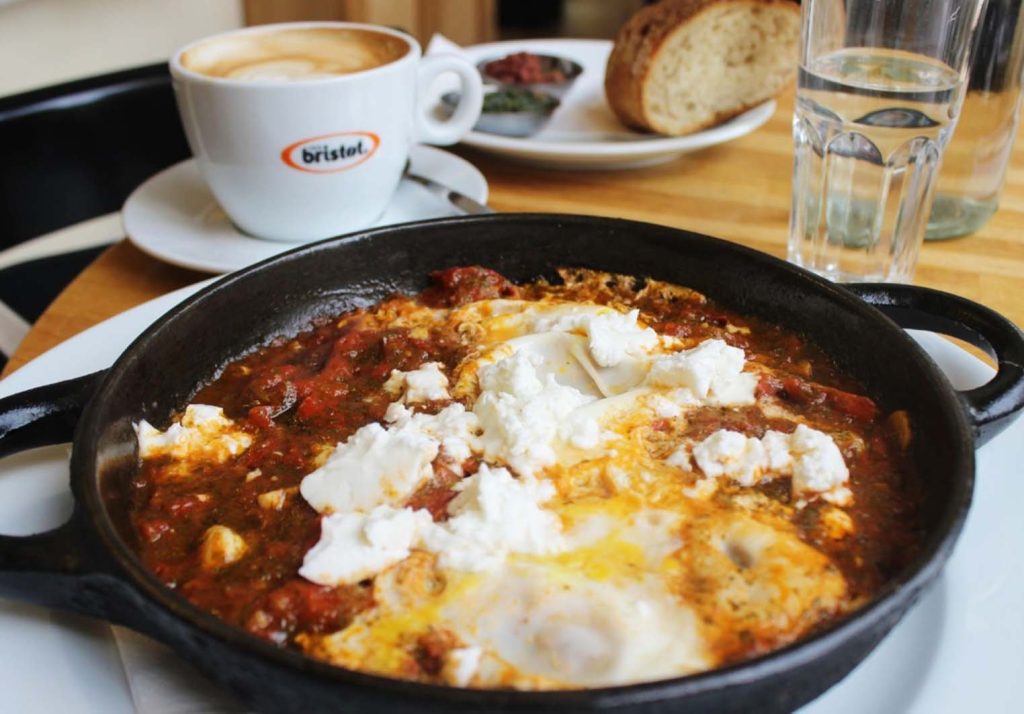
Mezze
In Meze, another breakfast option that I absolutely enjoy is the platter breakfast. This meal is a delightful spread of various dips, cheeses, olives, and fried vegetables such as roasted cauliflower, baba ghanoush (a creamy eggplant dip), tahini (a smooth sesame paste), zhonggh (a spicy sauce made with garlic, cilantro, and cumin), and, of course, hummus. These delicious components are served alongside a variety of accompaniments. Let’s delve into the world of bread: as a German, I’m particularly selective when it comes to bread, and I don’t usually appreciate the bread in most other countries. However, in Israel, I find it impossible to resist the fresh bread, and I’ve developed a deep fondness for the local bakeries.
You’ll find that many cafes in Israel have their own bakeries, where they bake an assortment of bread, including rye bread, whole wheat bread, and more. This is why the bread you get in Israel is always incredibly fresh and delectable. As a side note, bread is an integral part of virtually any Israeli meal. Whether it’s the classic Arab pita bread, traditional Jewish bread used for the New Year and Sabbath, or the delightful Israeli bread varieties, bread is a staple of the cuisine. So, for those attempting to avoid bread in Israel, it can be quite a challenge (though, seriously, what’s the point of enjoying hummus without pita bread?).
Accompanying the bread in an Israeli breakfast is the “small salad,” which you’ll often find. You can typically order eggs in your preferred style, and a side of salad is always included. The idea of eating salad for breakfast might sound unusual to some, but I personally enjoy it. This salad usually consists of cucumbers, with Israel boasting a unique variety of small cucumbers that are much smaller and less watery than what you might be used to. Alongside the cucumbers, you’ll typically find tomatoes, peppers, and onions, creating a refreshing and crunchy start to your day.
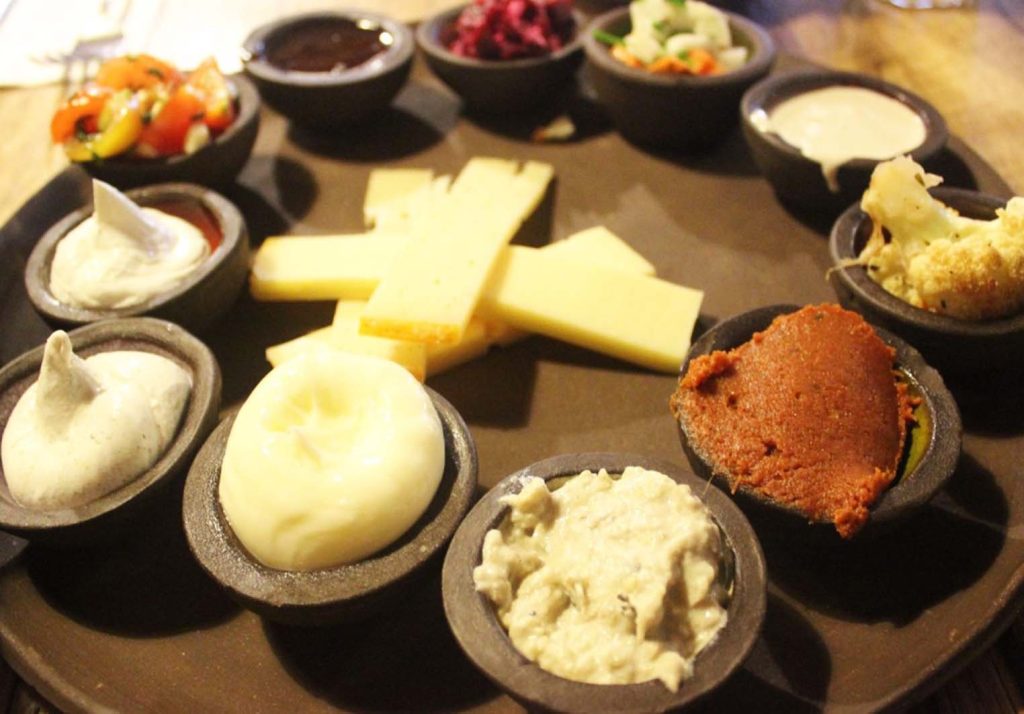
Common vegetarian dishes in Israel
One of the reasons I appreciate Israel is its exceptional embrace of vegetarian cuisine. I relish the fact that in this country, I do not feel deprived of local delicacies due to my abstention from meat. In Israel, I have never sensed any sense of missing out, and here are some of my favorite vegetarian dishes:
Chickpea Puree – A Culinary Delight from Israel
One of the most renowned dishes to emerge from Israel is chickpea puree, more commonly known as hummus. It has become a global sensation, appreciated by people from all walks of life. Hummus is a delectable concoction composed of chickpeas, tahini (sesame seed paste), olive oil, garlic, salt, and a splash of lemon juice. This blend results in a creamy, savory, and slightly tangy dip that is perfect for scooping with fresh pita bread or accompanying a variety of dishes.
As I mentioned earlier, although you can encounter hummus in many corners of the world, there’s something truly exceptional about tasting it in Israel. The quality, flavor, and texture of hummus in its homeland are unrivaled. It’s an experience that offers a genuine appreciation for the art of hummus-making.
One of my personal favorite places to enjoy hummus is a charming little establishment situated in the heart of Acre’s ancient city. Acre is a picturesque coastal town located in the northernmost region of Israel, known for its rich history and vibrant culture. The hummus shop, known as Sayed’s, is celebrated for its unparalleled hummus. Each visit to Sayed’s is a culinary journey, with the warm, velvety hummus stealing the spotlight. It’s served with pita bread fresh from the oven, a combination that is nothing short of heavenly.
In my opinion, the exceptional hummus in Israel is reason enough to revisit this enchanting country. The flavors, the ambiance, and the sense of tradition in every bite make it a delightful culinary adventure worth experiencing again and again.
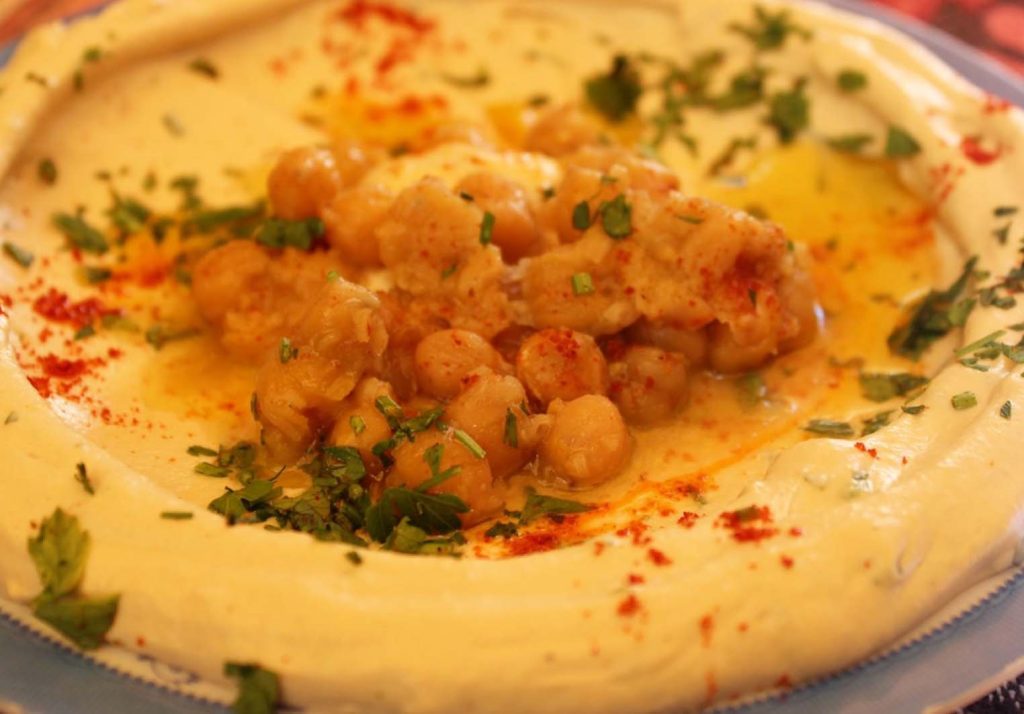
Falafel – A Culinary Gem That’s Everywhere
These heavenly deep-fried balls, much like hummus, have become a ubiquitous presence in most corners of the world. The exact origin of falafel is a subject of debate, but it has firmly established itself as a quintessential Middle Eastern dish in Israel. These delectable morsels are made from chickpeas (sometimes fava beans or a blend of both), often served with tahini (a staple in Israeli cuisine), hummus, and/or pita bread. From street-side stalls to upscale restaurants, falafel is readily available, and one thing remains consistent—the mouthwatering deliciousness.
While the true birthplace of falafel may be disputed, its popularity in Israel is undeniable. These crispy, flavorful nuggets, typically served in a pita bread pocket, have become a staple of Israeli cuisine. Whether you opt for a budget-friendly version from a street vendor or indulge in a gourmet rendition, the irresistible taste is a common thread.
So, while the exact origins of falafel may be shrouded in history, there’s no denying its status as a culinary masterpiece celebrated not only in Israel but worldwide.
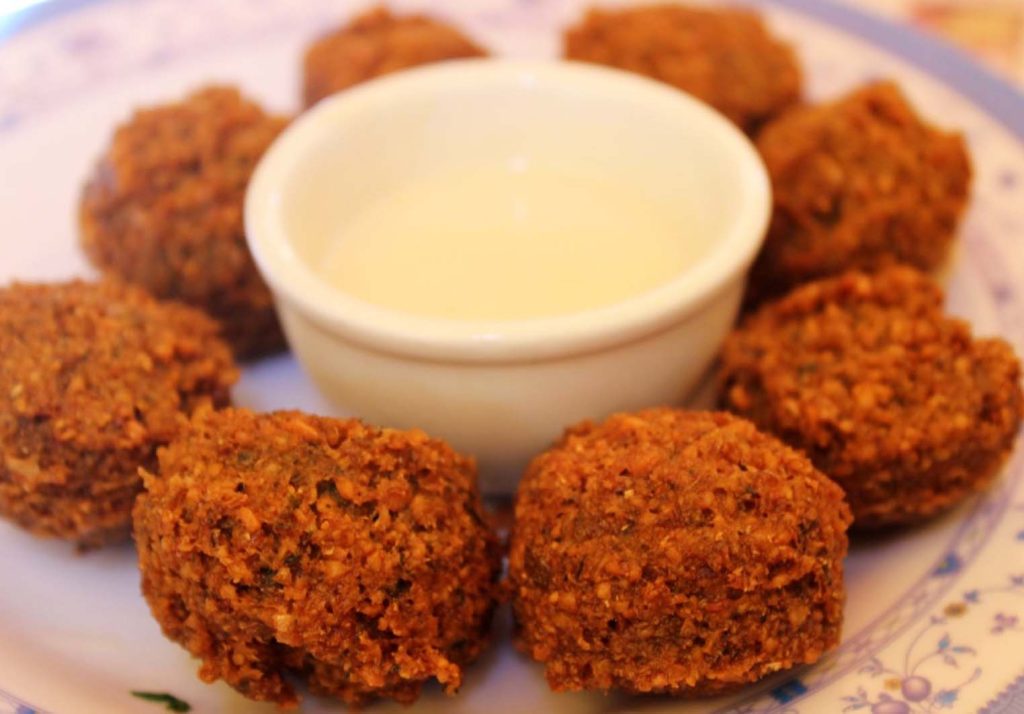
Eggplant
Eggplant is a classic ingredient in Israeli cuisine, often prepared in two distinct ways: as baba ghanoush (a seasoned eggplant dip) and roasted in the oven. When oven-roasted, the eggplant is typically baked whole, skin and all, before being peeled.
Burekas
Burekas is Israel’s take on the Turkish pastry “Borek,” consisting of thin layers of phyllo dough filled with cheese, spinach, or mushrooms, and sometimes other ingredients. They are either fried or baked and serve as a popular snack, readily available in most bakeries or specialized bureka vendors. They can be enjoyed at any time of the day. Pro tip: Get them fresh out of the oven for the best experience. Another delectable bread brought to Israel by Georgian Jews is Khachapuri, a delightful cheese-filled pie with a fried egg on top.
Tabbouleh – A Journey into Israeli Cuisine
Tabbouleh is a highly popular salad featuring tomatoes, parsley, mint, onions, and bulgur wheat, seasoned with olive oil, lemon juice, and salt. This dish is not only enjoyed in Israel but is a common presence throughout the Middle East.
Learning How to Make Israeli Food
Being a fervent fan of Israeli cuisine, I was eager to learn how to prepare some of my favorite dishes at home. Fortunately, Abraham Tours in Jerusalem offers cooking classes and market tours, providing a unique opportunity to delve into the world of Israeli food and culture. Our lively guide, Samantha, kicked off our culinary adventure at Mahane Yehuda Market, a bustling and vibrant marketplace in Jerusalem, which is a must-visit even if you’re not planning to buy fresh produce.
As we meandered through the labyrinthine lanes of fruits, vegetables, cheese, fish, bakeries, and olive stands, we learned that chickpeas, onions, tomatoes, cucumbers, cilantro, and sesame are the foundation of many Israeli dishes. Rice is prevalent, and lentils are a staple, but coarse semolina and cracked wheat (both grains) are also popular. Jewish traditions have brought Eastern European and Russian dishes like borscht, schnitzel, chopped liver, boiled chicken, and gefilte fish to Israel. With its extensive Mediterranean coastline, fish is a common sight in Israel, with dishes like Harimeh, a spicy fish dish made with tomatoes, garlic, chili, and cilantro, originating from North Africa.
After exploring the market, we returned to the hotel with enough ingredients to prepare a feast for at least twenty people, and we got to work. The menu included:
- Smoked eggplant with sheep’s cheese and tahini
- Tahini paste
- Tabbouleh salad
- Date syrup-glazed cauliflower
- Cabbage and fennel salad
- Mediterranean rice (using the marvelous spice mix we procured at the market—I went back to buy more later)
- Hamshuka (a flavorful ground meat stew)—ideal for meat enthusiasts
Cooking all these dishes in the vibrant setting of the market was as enjoyable as the visit itself. Samantha divided us into small groups of 1-2 people, and each group was responsible for preparing a specific dish. We were taught how to chop the vegetables for each dish, how to cook or bake them, and how to present the dishes when completed. I’ve recreated some of the dishes I learned from Samantha at several Mediterranean-themed dinner parties, including eggplant, tahini, tabbouleh salad, Mediterranean rice, and roasted cauliflower, and they have always been a big hit.
The Mahane Yehuda Market tour and cooking class at Abraham Hostel were among the highlights of my time in Jerusalem. If you’re interested in gaining a deeper understanding of Israeli cuisine and how to prepare some Israeli dishes, I highly recommend joining this private class (you don’t have to stay at the hostel to sign up, but if you do, you can enjoy a discount on the class). Abraham Hostel now also offers a hummus workshop, which I’ll definitely attend next time I’m in Jerusalem. As I’ve said, eating hummus in Israel will ruin your life and turn you into a hummus snob. So, where better to learn how to make hummus than in Israel? And, yes, the workshop does include eating all the hummus you prepare! Trust me, it’s the best 50 shekels (approximately $12.50) you’ll spend in Jerusalem.
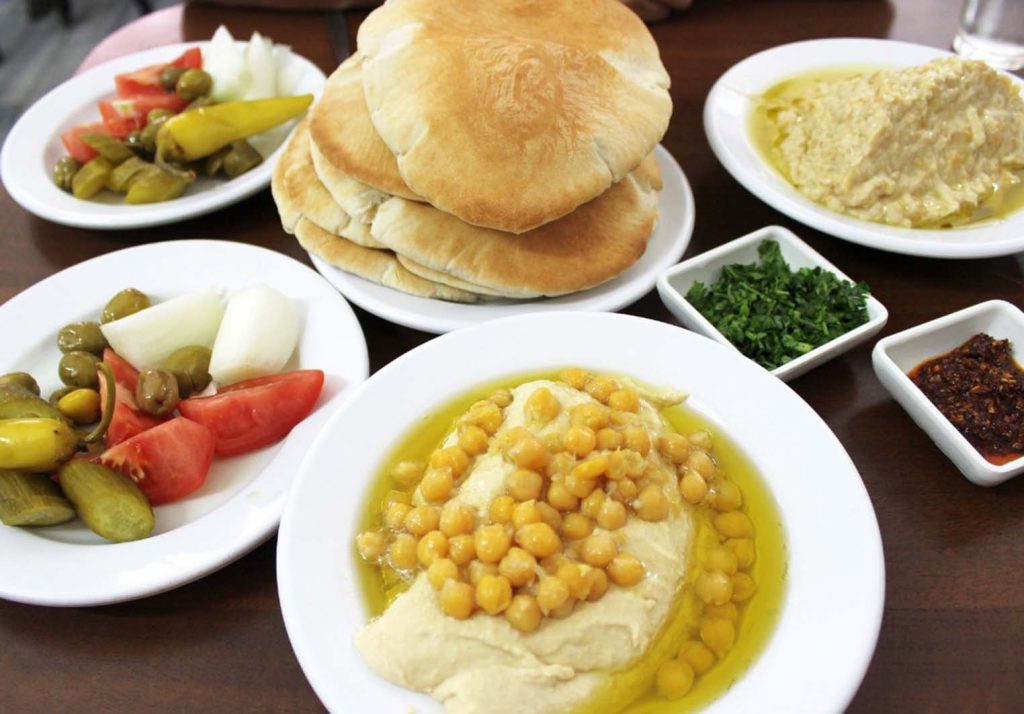
Israel: A Dessert Paradise!
When it comes to Israeli cuisine, we can’t overlook the incredible desserts that were a major contributor to my six-pound weight gain upon returning from Israel. Sweet treats and pastries are undoubtedly among the best aspects of Israeli food, and delicious confections can be found everywhere.
Jewish Pastries
Jewish pastries bear a striking resemblance to German cakes, cookies, and pastries and can be found in bakeries throughout the region.
Halva
Halva is a confection made from sesame seeds with the addition of honey, vanilla, pistachios, cocoa, almonds, or other nuts. In the markets, halva is sold in large cake-like blocks, from which your desired amount is sliced off, almost like a cake. Halva is one of the quintessential Israeli sweets and is a must-try before leaving Israel (they often offer free samples at the markets).
Baklava
The most famous Middle Eastern dessert, Baklava, is a pastry made from nuts or pistachios, honey, syrup, and phyllo dough. Most bakeries offer a variety of shapes and flavors, making it incredibly addictive.
Kanafeh
Kanafeh is one of my favorite desserts in Israel, although the best one I ever had was in Ramallah. If you happen to visit the West Bank in Jordan (which you should!), be sure to try Kanafeh during your visit. It’s made from ultra-thin pastry threads soaked in sweet syrup, with a layer of soft white cheese in the middle, topped with pistachios.
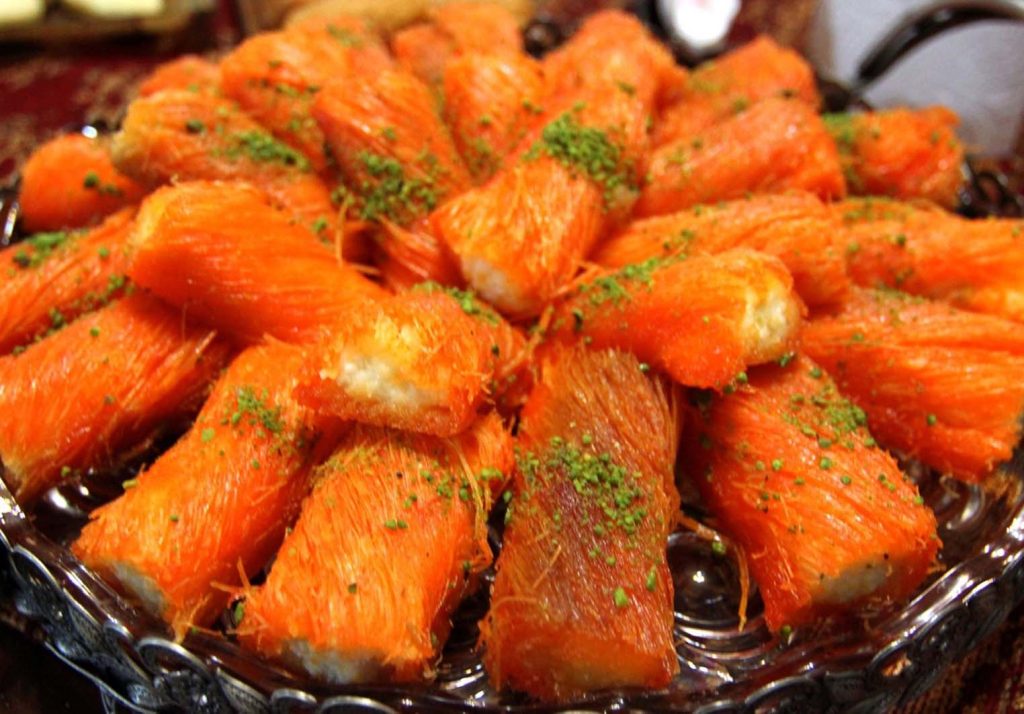
Arab Coffee
Typically, you would enjoy Arab coffee (also known as Turkish coffee) with desserts. This coffee is brewed in a special pot and flavored with cardamom. It’s best served in small cups for a strong, black brew.
Where to Find the Best Food in Israel
I’d like to list some places I’ve eaten at that are worth a visit, but my list of restaurants I’ve dined at in Israel would be quite extensive. So, I’ve decided to include some truly remarkable places that left a lasting impression on me. If you happen to pass by these places during your travels in Israel, I believe they’re worth a visit. I recommend marking them on Google Maps before your trip (you can save a location and label it as “Want to Go”). Here are some of the best places I’ve eaten at in Israel (a shoutout to my friend Rotem’s mom, who would undoubtedly make the list, but she doesn’t have a restaurant!).
Tel Aviv: Breakfast
One of my favorite places for breakfast in Tel Aviv is Bucke Cafe (Ahad Ha’Am St 91). Located on a quiet residential street, you won’t stumble upon this place by chance, but don’t be fooled – there’s usually a line outside the cafe. It’s one of Tel Aviv’s most popular breakfast spots, and for good reason. I had the best French toast of my life there, as well as other breakfast dishes (bowl of health, shakshuka, and other egg dishes, salads). The cafe’s ambiance is also cool, so be sure to have breakfast there when you’re in Tel Aviv. In Tel Aviv, Bucke Cafe is one of the best places for breakfast. Another great place for brunch/breakfast is Hamanya (Basel St 37). It’s located in a residential area in the north of Tel Aviv, and it’s worth taking a stroll along Basel Street because there are plenty of little shops and cafes around, and I love the atmosphere in this area. Hamanya offers incredible breakfast platters, smoothie bowls, and salads. The coffee is also great!
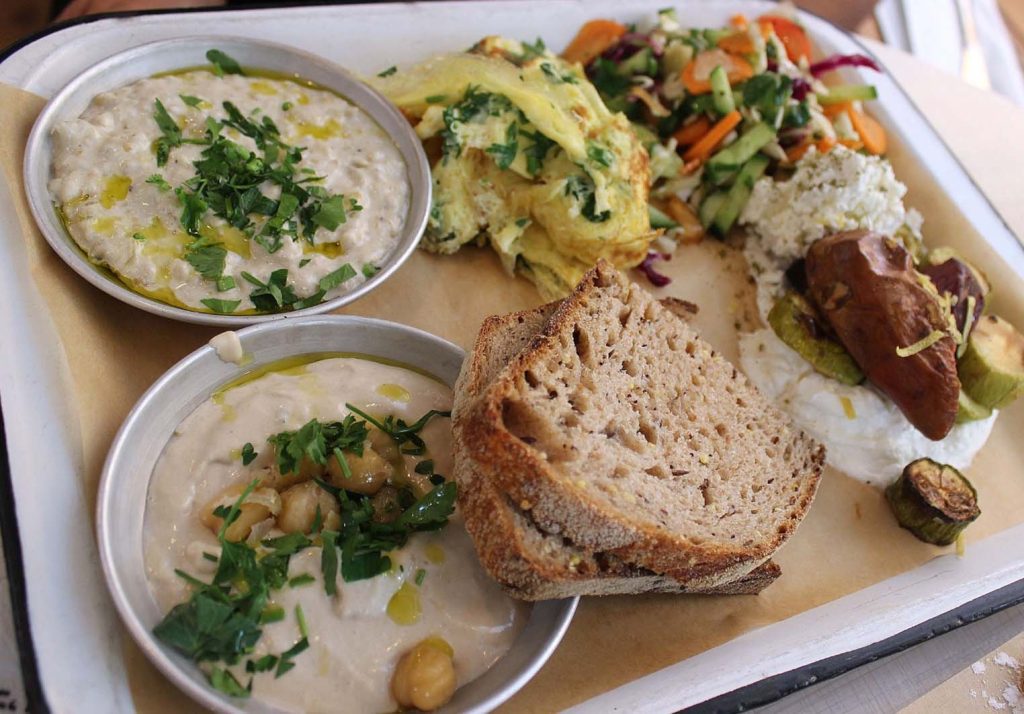
Tel Aviv: Hummus
I’ve had hummus in many places in Tel Aviv, but Abu Hassan (Ha-Dolfin St 1) remains my favorite. I believe Jaffa (the Arab part of Tel Aviv) is the best place to try hummus, and Abu Hassan (Abu Hummus) is the most famous hummus for a reason. The hummus is piping hot, topped with chickpeas, and the pita bread is delicious. I love this unpretentious place. They know their food is excellent (you can find Abu Hassan in many “best hummus restaurants in Israel” lists), so why bother with fancy decor?
Tel Aviv: Sabich Sandwich
I’m obsessed with sabich sandwiches, even though they are considered a fast and straightforward snack. To me, they are one of the best foods in Israel. These sandwiches are packed with roasted eggplant, boiled eggs, Israeli salad, hummus, tahini, and a touch of magic, incredibly satisfying. There’s a lot of debate about who makes the best sabich sandwich in Tel Aviv, but for me, the answer is undoubtedly Sabih Frishman (Frishman St 42), a small food stall located on the corner of Frishman Street and Dizengoff Street.
